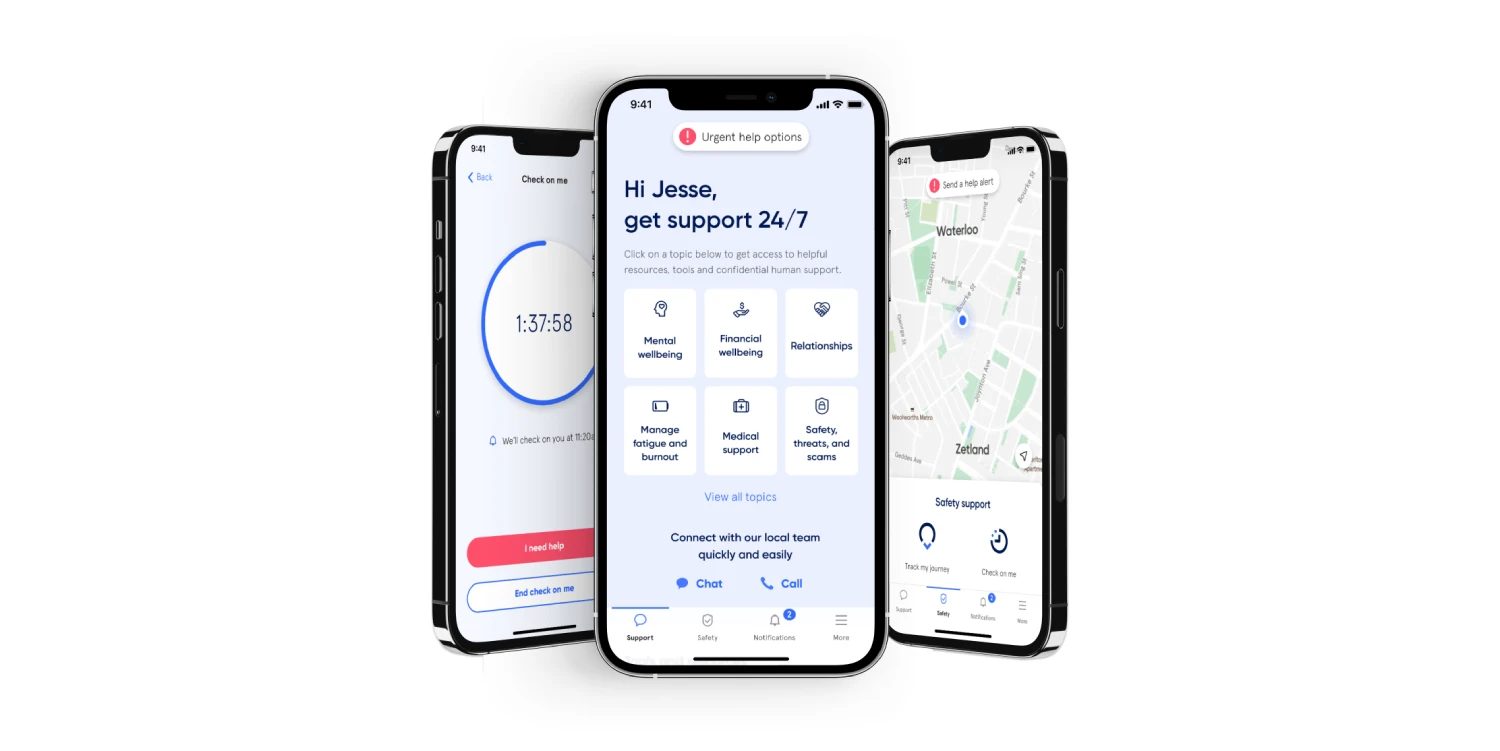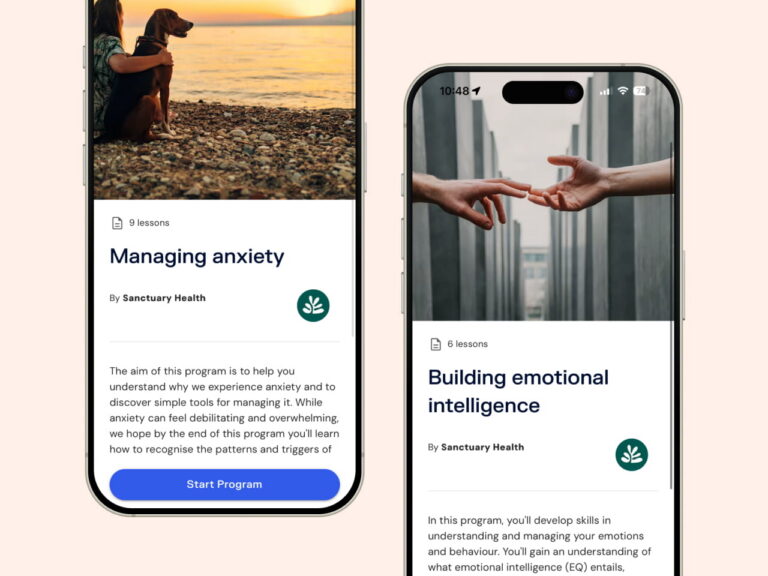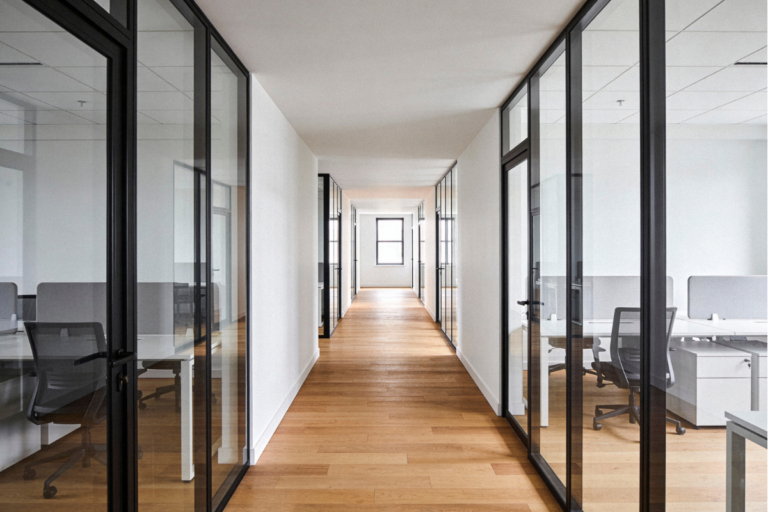According to the International Labour Organization, “Workers’ wellbeing is a key factor in determining an organisation’s long-term effectiveness”. This means that employers need employees to be safe and well if they are to perform at their best.
But as our previous article explained, many employees cannot do this alone, and poor wellbeing is costly. Productivity losses from absenteeism can range between 1.4 to 2.8 times the value of the impacted worker’s wage, and replacing a worker can cost up to 33 per cent of a worker’s wage. Plus, there is a ripple effect on colleagues, managers, families, and close friends.
Now more than ever, employee wellbeing needs to be a shared responsibility because:
- Many employees cannot easily access the care they need; and
- This is affecting organisational performance.
Is employee health an organisation’s responsibility?
Some leaders argue it’s not their organisation’s responsibility to solve employee access to health care. For example:
- If an employee loses sleep at night or needs a medical consultation, that is their out-of-hours problem.
- If their partner is ill and unable to fulfil childcare duties, that is their private issue to fix.
- If an employee’s safety outside of work hours is at risk, there is no reason for work to intervene.
- If a worker has mental health concerns, it’s assumed they will ring the helpline number on the lunchroom poster after they clock off.
This is even though the 2021 PwC-Atlassian survey of 1,000 employees in Australia showed that mental health and wellness was the top societal issue, followed by access to health care, cost of living, and cost of health care.
“There is no magical fence that keeps everything in your home life out that side of the fence and everything in your work life in this side of the fence.”
Jane Bourke
Group Director, Safety, Health and Wellbeing, Woolworths Group
Regional overviews on employee health
Australia
In Australian workplaces (excluding the mining sector), on-site health clinics are rare.
However, there are a growing number of employers proactively funding employee telehealth services and/or innovative EAP alternatives (e.g. that combine a digital app with medical, psychology, and other specialist services in one single-entry point). Woolworths Group, PwC, Team Global Express, Best&Less, NRMA, Probe CX, and Marley Spoon are examples of companies embracing shared responsibility and leading the charge.
United Kingdom
In workplaces in the United Kingdom, on-site health clinics exist but are not commonplace.
To attract top talent, some companies offer premium private health insurance as part of their total compensation package. Private health insurance may provide access to clinics with shorter wait times or cover more elective procedures. Some employers also provide specific types of care that are not provided by the National Health Service (NHS) or included in private health plans.
United States
In the United States, where employers have long been required to share a more active approach to employee health care, many companies offer on-site health clinics.
According to a pre-pandemic national workplace study by Mercer, 33 per cent of companies with 5,000 or more workers, and 18 per cent of mid-sized companies with 500 – 4,999 workers, offered an on-site or nearby health clinic.
What does “shared responsibility” for wellbeing mean?
For employers it means:
- Taking an active care approach.
“Taking action in order to achieve something, rather than just hoping for it or achieving it in an indirect way”, by deliberately building a culture that enables and empowers employees to actively participate in positive health and safety behaviours and outcomes.
- Acting with a sense of urgency.
Organisations are leaking millions of dollars each year in absenteeism, presenteeism, workers’ compensation, employee turnover, and the ripple effect of lost productivity from colleagues and family members – and the longer that people are unsafe or unwell, the worse their conditions can become, says the World Health Organization.
References: Direct Health Solutions, Australian Broadcasting Commission, The Centre for International Economics, Medibank, Safe Work Australia, Sonder
Leaders as wellbeing agents of change
The best leaders are agents of change who take a more active care approach – to help their employees stay safe and well, because the healthier and happier an employee, the more engaged and productive they are in the workplace, and the more financial benefit they are likely to contribute to an organisation.
References: Centers for Disease Control and Prevention, IPSOS, The Wall Street Journal, Society for Human Resource Management, Public Health Reports, University of Oxford, Sonder
What is a health-savvy CEO? “A CEO who appreciates that decisions relating to health and health care can have a significant impact on the culture of the organisation, the way in which work gets done, the cascading effects of that work in spaces and places beyond the organisation’s four walls, and the power of the CEO’s personal brand to support people’s health.”
Deloitte
Does empowering your employees lead to better health and business outcomes?
Our next article in this series will explore the concept of employee empowerment from a wellbeing perspective, and will include examples of better business outcomes.
To stay in the know, we invite you to follow us on LinkedIn and regularly check our resources pages.
Meet Sonder’s preventative care platform
Sonder is a technology company that helps organisations improve the wellbeing of their people so they perform at their best. Our mobile app provides immediate, 24/7 support from a team of safety, medical, and mental health professionals – plus onsite help for time-sensitive scenarios. Accredited by the Australian Council on Healthcare Standards (ACHS), our platform gives leaders the insights they need to act on tomorrow’s wellbeing challenges today.

About Sonder
Sonder is a technology company that helps organisations improve the wellbeing of their people so they perform at their best. Our mobile app provides immediate, 24/7 support from a team of safety, medical, and mental health professionals – plus onsite help for time-sensitive scenarios. Accredited by the Australian Council on Healthcare Standards (ACHS), our platform gives leaders the insights they need to act on tomorrow’s wellbeing challenges today.



